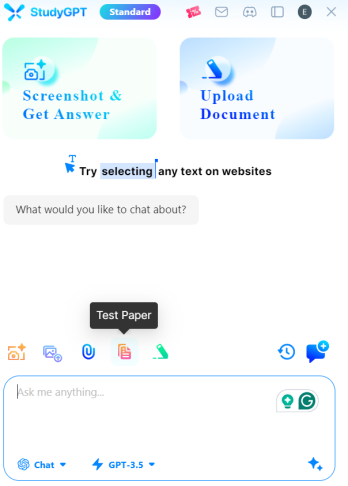
Introduction
Over time, test automation has undergone tremendous change. It has greatly aided QA teams in lowering the likelihood of human error. Although there are many tools available for test automation, choosing the best tool for the job has always been crucial to the success of an automated testing plan. These days, artificial intelligence, machine learning, and neural networks are the most talked-about subjects in the computer industry. Furthermore, AI will always be present, even in the field of automated testing. The load of managing monotonous chores has been lifted by the use of AI testing tools, freeing up hours of labor so that the team may focus on more difficult and important activities. It has been crucial in meeting the growing demand for quick and intelligent development. The software development process has been maintained moving forward by the existing methods of continuous testing, DevOps, and Agile, but the introduction of AI has quietly revealed the full potential of software testing and paved the way for Continuous Test Automation.
What Is The AI That Solves Online Exams?
Artificial Intelligence (AI) has completely changed a lot of industries, including education. Using AI to solve online tests is one of the most fascinating uses of technology in education. This technology has the potential to completely change how kids learn, how assessments are administered, and even how teachers create their lesson plans. However, what is this AI that answers online tests really made of, and how does it operate? The intricacies of AI-powered exam-solving technology are examined in this article, along with its features, advantages, drawbacks, and moral implications.
Understanding AI in Online Exams
Sophisticated algorithms used in AI systems for online tests are able to comprehend, interpret, and provide answers to test questions. These systems assess and provide answers to a variety of question kinds, such as multiple-choice, short-answer, and essay questions, using a combination of Natural Language Processing (NLP), Machine Learning (ML), and occasionally Computer Vision.
Key Technologies Behind AI Exam Solvers
1. Natural Language Processing (NLP):
AI can comprehend and process human language thanks to NLP. It facilitates understanding the context of questions, locating important ideas, and coming up with suitable answers. When presented with an essay question, for example, natural language processing (NLP) algorithms examine the essay prompt, arrange the response, and make sure the answer is coherent and pertinent.
2. Machine Learning (ML):
AI can learn from enormous databases of queries and replies thanks to machine learning techniques. Through the use of these datasets for training, the AI can become more accurate and efficient at responding to queries. Additionally, ML models are flexible tools that may be used at multiple educational levels since they can adjust to varied exam formats and subject areas.
3. Computer Vision:
Computer vision is essential for exams that contain graphs, diagrams, or handwritten responses. The AI can now read visual data thanks to this technology, which guarantees that it can answer a variety of questions in addition to text-based ones.

How AI Solves Online Exams
The process of solving online exams using AI involves several steps:
1. Question Analysis:
The AI-first analyzes the question to understand its type (e.g., multiple-choice, short answer, essay) and subject matter. This step involves parsing the text, identifying keywords, and determining the context.
2. Knowledge Retrieval:
Using its trained models and databases, the AI retrieves relevant information needed to answer the question. For factual questions, this might involve querying a knowledge base. For analytical questions, it may involve synthesizing information from multiple sources.
3. Answer Generation:
The AI generates an answer based on the analyzed question and retrieved information. This answer is formulated to match the expected format and depth of the response required by the exam.
4. Answer Validation:
Before submitting, the AI often validates the answer to ensure accuracy and relevance. This step might include cross-referencing with multiple sources or checking against predefined answer templates.
Benefits of AI in Online Exams
1. Efficiency:
AI can process and answer questions much faster than humans, significantly reducing the time required to complete exams. This efficiency is beneficial in time-constrained testing environments.
2. Consistency:
AI provides consistent responses free from human biases. This consistency ensures fairness in grading and assessment.
3. Scalability:
AI systems can handle large volumes of exams simultaneously, making them ideal for standardized testing and large-scale educational assessments.
4. Accessibility:
AI can offer personalized assistance to students with disabilities, ensuring that all students have equal opportunities to perform well in exams.
Challenges and Ethical Considerations
While the benefits are substantial, the use of AI in solving online exams also poses several challenges and ethical issues:
1. Accuracy and Reliability:
Ensuring that AI systems consistently provide accurate and reliable answers is crucial. Errors in AI responses can lead to unfair grading and assessment outcomes.
2. Academic Integrity:
The use of AI to solve exams raises questions about academic integrity. If students use AI to complete their exams, it undermines the educational process and the value of the credentials earned.
3. Data Privacy:
AI systems require access to large datasets to function effectively. Ensuring the privacy and security of student data is a significant concern that must be addressed.
4. Bias and Fairness:
AI models can inadvertently perpetuate biases present in their training data. It is essential to regularly audit and update these models to prevent biased outcomes.
How StudyGPT Can Help You Solve Online Exams
AI-powered applications like StudyGPT are growing in popularity as the educational landscape changes in tandem with technological improvements. StudyGPT is an AI-powered study aid that uses cutting-edge algorithms to help students with all parts of their educational process, including getting ready for and completing online tests. This post examines StudyGPT's features and explains how to use them to successfully help with online test solving.
Understanding StudyGPT
Natural language processing (NLP) and machine learning (ML) are the foundations of StudyGPT. It's made to have conversational interactions with students while offering tailored study support. A wide range of academic duties can be assisted by StudyGPT, from offering practice tests and study advice to clarifying difficult concepts and supplying particular answers to problems.

Key Features of StudyGPT
1. Question Answering:
StudyGPT can provide detailed answers to questions across various subjects. By understanding the context and content of the questions, it can deliver precise and informative responses, helping students grasp the underlying concepts.
2. Concept Explanations:
When faced with difficult topics, students can rely on StudyGPT for clear and concise explanations. This feature is particularly useful for subjects that require deep understanding and critical thinking.
3. Practice Exams:
StudyGPT can generate practice exams tailored to the student’s curriculum and learning level. These practice tests help students familiarize themselves with the exam format and identify areas where they need improvement.

4. Study Tips and Strategies:
Beyond direct academic assistance, StudyGPT offers personalized study tips and strategies, helping students optimize their study schedules and techniques for better performance.
5. 24/7 Availability:
One of the most significant advantages of StudyGPT is its availability. Students can access help anytime they need it, making it a reliable study companion.
How StudyGPT Helps in Solving Online Exams
1. Preparation and Practice:
StudyGPT can aid in the preparation phase by providing practice questions and mock exams. This helps students get used to the type and format of questions they might encounter, boosting their confidence and readiness.
2. Clarifying Doubts:
During study sessions, students often encounter doubts or need further clarification on specific topics. StudyGPT can provide immediate explanations, ensuring that students can progress in their studies without interruptions.
3. Efficient Time Management:
By generating practice exams and suggesting study schedules, StudyGPT helps students manage their time effectively. This ensures that they cover all necessary topics and practice adequately before the actual exam.
4. Reviewing and Revising:
StudyGPT can assist in reviewing and revising key concepts. It can summarize topics, highlight important points, and quiz students on their knowledge, making revision sessions more productive.
5. Stress Reduction:
The constant availability and personalized support from StudyGPT can reduce the stress and anxiety associated with exam preparation. Knowing that they have a reliable resource to turn to can help students maintain a positive and focused mindset.
Ethical Considerations and Best Practices
While StudyGPT offers significant advantages, it is crucial for students to use it ethically. Here are some best practices:
1. Complementing Human Learning:
StudyGPT should be used to complement traditional learning methods, not replace them. Engaging with teachers, participating in class, and studying textbooks remain essential.
2. Avoiding Over-reliance:
Students should ensure they understand the material rather than just relying on AI-generated answers. Critical thinking and problem-solving skills are developed through active engagement with the content.
3. Maintaining Academic Integrity:
Using StudyGPT to unfairly gain an advantage in exams undermines academic integrity. Students should use the tool for preparation and understanding, not for cheating during exams.
4. Privacy and Security:
Students should be mindful of the data they share with AI tools. Ensuring that the tool adheres to privacy standards and data security measures is crucial.
Conclusion
StudyGPT is an effective instrument in the current educational toolbox that provides students with a great deal of assistance in getting ready for and completing online tests. StudyGPT can boost learning and boost academic achievement by giving practice chances, answering questions, and offering individualized support. To fully benefit from this technology, however, it must be used morally and in concert with conventional study techniques. StudyGPT and other such technologies will probably become indispensable academic allies as AI continues to permeate education.